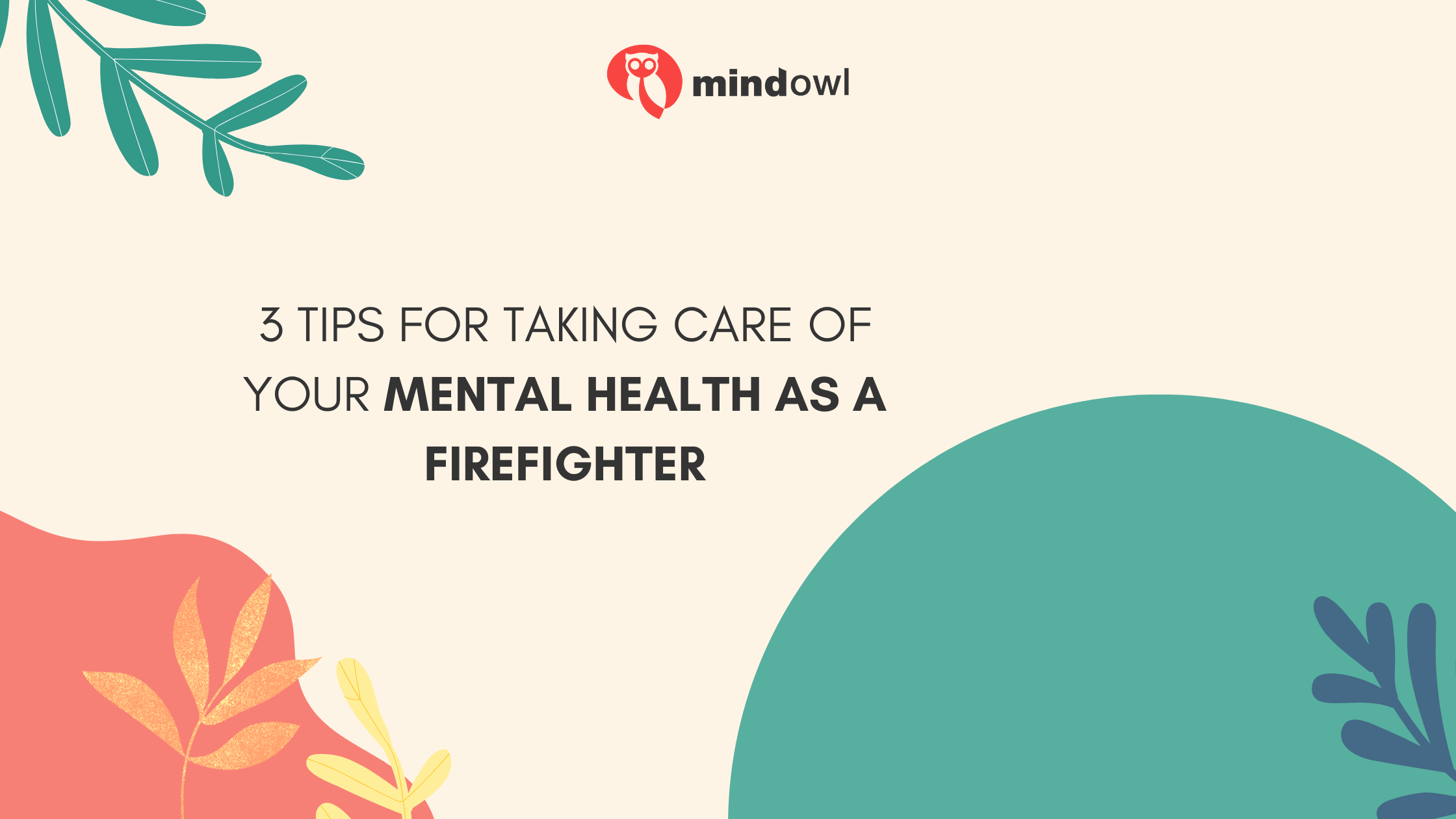_

Choosing to work as a firefighter is not for the faint of heart. Firefighters don’t only battle blazes and rescue people from burning buildings. These unsung heroes are witnesses to traumatic events. They also have to perform rescue operations for long hours. All this often takes a toll on their mental health.
Data suggests that the prevalence of depression among firefighters is 18.7%. This is higher than that of the community population. Post-traumatic stress disorder and anxiety are also common among firefighters—no wonder so many firefighters are dying by suicide.
As a firefighter, you’re focused on the physical aspects of the job, but that doesn’t mean you should neglect your mental health. You must prioritize it. Here, we’ll share a few tips that will help you improve your mental health.
#1 Stay Informed About Your Risks
When it comes to managing your mental health, knowledge is power. You must educate yourself about mental health issues that are common among firefighters.
As a firefighter, you are at risk of developing PTSD. The prevalence rate of post-traumatic stress disorder (PTSD) in firefighters is between 1.9% and 57%.
A sample report revealed that witnessing the death of a colleague while in active service is the most disturbing event that could lead to PTSD among firefighters. Hearing radio communications about fellow firefighters being injured, in danger, or deceased is a close second, followed by rescuing a severely injured or deceased colleague firefighter.
If you’re exposed to per- and polyfluoroalkyl substances (PFAS) in large amounts, you might suffer from depression or anxiety. Recent research reveals that this man-made chemical accumulates in the human brain and disrupts hypothalamic-pituitary-adrenal axis function. This might lead to anxiety-like behaviors and major depressive disorder.
Firefighters are exposed to these chemicals through AFFF, or aqueous film-forming foam. This foam is used to extinguish flammable liquid fires. While it puts out fire effectively, it harms the mental health of firefighters. One study has found a link between PFAS and anxiety and depression.
A large number of firefighters have filed the AFFF lawsuit because their exposure to PFAS in AFFF caused mental health issues. These people blame the manufacturers of AFFF for putting their mental health at risk. The lawsuit alleges that the makers of AFFF failed to warn them about the risks associated with PFAS.
More than a dozen companies have been named in the lawsuit. Per TorHoerman Law, ChemDesign Inc., Chemguard Inc., Tyco Fire Products, Chemours, DuPont, and 3M are some companies named in the lawsuit.
Staying informed of your risks will help you understand when you or your colleagues are struggling and need support. Additionally, there are resources available for mental health support and treatment. These include counseling services, peer support groups, and specialized mental health programs tailored to first responders. You can make use of them.
#2 Prioritize Sleep
Firefighters are first responders. Your job keeps you on your toes since emergencies occur at any time, and you are required to be present irrespective of the time of the day. This irregular work schedule and odd work hours often result in chronic sleep deprivation in firefighters.
Studies have uncovered that sleep deficiency alters activity in certain parts of the brain. When you’re sleep-deficient, you might face trouble solving problems, making decisions, and controlling your behavior and emotions. Not getting adequate sleep also puts you at risk of suicide, depression, and risk-taking behavior.
Make sure you get enough sleep when you’re away from duty. Adequate sleep will allow your body to recover from the physical strain of firefighting. It will also help regulate your mood and cognitive function.
Establishing a bedtime routine will help you get better sleep. If you have trouble sleeping or are insomniac, try creating a sleep-friendly environment. A cool, dark, and quiet bedroom will help you fall asleep fast. You can also use calming scents like lavender. They will help relax your mind and enhance your sleep quality.
#3 Exercise Regularly
As a firefighter, you need to be physically strong to withstand the stressors of your job. You must also have muscular endurance and strength to discharge your duties effectively. Regular exercise will help you achieve and maintain this level of fitness.
Most firefighters, however, skip exercising due to the nature of their jobs. Physical inactivity will not only affect your performance, but it will also have a negative impact on your mental health.
A recent study found a link between physical activity and PTSD in firefighters. Those who exercised less and led a sedentary lifestyle exhibited symptoms of PTSD. Hence, you should work out daily.
Aim to work out for 30 to 40 minutes per day to reduce your risk of PTSD. Running, jogging, or walking along with squats, lunges, and planks are some light workouts you can engage in to keep yourself healthy both physically and mentally.
To wrap things up, regular exposure to traumatic events puts firefighters at risk of mental health issues. Thus, taking care of your mental health should be your priority. You can keep yourself healthy mentally by following these tips. Also, remember to eat a balanced diet and steer clear of substance use. Rest assured that you will be able to meet the unique challenges of firefighting while safeguarding your well-being.
MindOwl Founder – My own struggles in life have led me to this path of understanding the human condition. I graduated with a bachelor’s degree in philosophy before completing a master’s degree in psychology at Regent’s University London. I then completed a postgraduate diploma in philosophical counselling before being trained in ACT (Acceptance and commitment therapy).
I’ve spent the last eight years studying the encounter of meditative practices with modern psychology.

